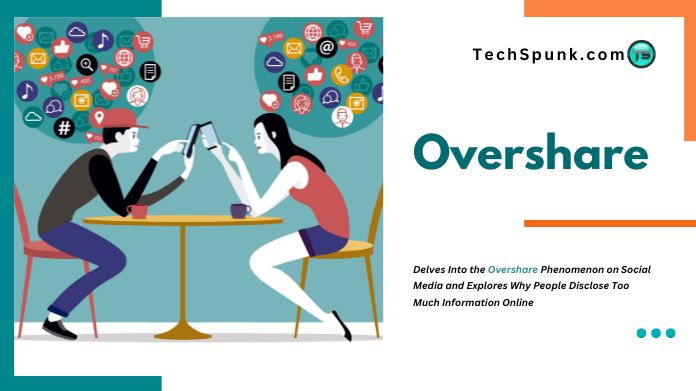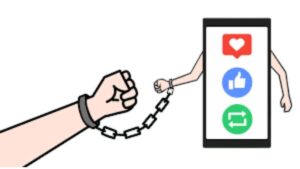Many people’s life revolves around social media, yet excessive online sharing, i.e., overshare, has serious repercussions.
This article delves into the overshare phenomenon on social media and explores why people disclose too much information online.
It sheds light on the potential risks associated with oversharing, including identity theft, cyberbullying, and damage to personal and professional relationships.
This article aims to increase awareness and encourage individuals to rethink their social media habits by examining real-life examples and discussing the psychological factors contributing to overshare.
Whereas if you are looking for how to fix the Instagram messenger update not showing error. You can check our recent post.
So, what is oversharing on social media—and most importantly, how can you stop this issue from ruining your life?
Let’s find out!!
Table of Contents
What is Oversharing on Social Media?

It involves divulging intimate aspects of one’s life that may be better suited for private conversations or offline interactions.
Oversharing can include sharing sensitive information such as personal addresses, phone numbers, and financial details or revealing intimate details about relationships, health issues, or personal struggles.
Oversharing has become more prevalent with the rise of social media platforms that encourage users to share their thoughts, activities, and experiences with their online connections.
While sharing aspects of one’s life can be a positive way to connect and engage with others, oversharing can have negative consequences.
Apart from this, we have explained how to make a public profile on Snapchat. For more details, you can check the post on it.
Examples of oversharing on social media can include:
- Posting excessive updates about daily activities.
- Constantly documenting personal relationships or conflicts.
- Sharing explicit or intimate photographs.
- Discussing emotional problems or sensitive topics in great detail.
- Airing grievances about work or personal life in a public forum.
It is essential that the definition of oversharing can vary among individuals, as personal boundaries and comfort levels with sharing personal information can differ.
However, oversharing becomes a concern when it compromises personal privacy, damages relationships, or poses potential risks to one’s safety and well-being.
Why Do People Overshare?

Here are some common reasons why individuals tend to overshare:
1. Validation and Attention

Likes, comments, and shares on individual posts can boost self-esteem and create a sense of social acceptance.
As a result, some individuals may feel compelled to share personal information to receive validation and attention from their online connections.
2. Self-Expression and Identity

Some people may overshare personal information to showcase their interests, experiences, and achievements.
By sharing personal details, they aim to create a specific image or narrative about themselves, seeking affirmation from others.
3. Emotional Outlet

They may overshare personal information to seek empathy, advice, or a sense of community from their online connections.
4. Influence of Social Norms

The pressure to conform to this culture can lead individuals to overshare, feeling that it is expected or necessary to participate actively in the online community.
5. Technological Facilitation

With just a few taps on the phone, individuals can share their thoughts, photos, and experiences with a vast audience.
The convenience of technology can contribute to impulsive and oversharing behavior.
How to Stop Overshare on Social Media?
Here are some actions that you can stop oversharing on social media.
1. Choose Your Content Wisely

Share significant moments, achievements, or meaningful experiences rather than every mundane detail of your life.
Ask yourself if the information adds value, represents your true self, and aligns with your defined boundaries.
2. Avoid Posting When You Are Angry

Emotions can cloud assessment and lead to impulsive oversharing, which may have negative consequences.
Take a step back, give yourself time to cool down, and reconsider whether sharing your emotions publicly is the right decision.
3. Adopting Methods to Limit Sharing

For example, you can put a time limit, allowing only a certain amount of daily or weekly social media usage.
You can also establish a rule to seek external validation rather than relying solely on social media.
Find alternative ways to express yourself and share your thoughts, such as through personal journals, conversations with close friends, or engaging in hobbies.
4. Keep Track of Your Social Media Usage

Keep away from the frequency and types of posts you make.
If you notice a pattern of oversharing, take a step back and reassess your motivations.
Consider whether underlying insecurities or dependencies on social media drive your oversharing behavior.
5. Staying Safe On Social Media

Avoid sharing sensitive data like your home address, phone number, or financial details.
Be cautious about getting friend requests or connections from strangers. Regularly review and adjust your privacy settings to protect your personal information.
6. Separate Your Personal and Professional Audiences

Consider creating separate accounts or profiles for personal and professional use.
Use privacy settings to control who can consider your posts and ensure that your personal life differs from your work or professional online presence.
Final Wrap!
Oversharing on social media can have unintended consequences, both in terms of personal privacy and professional reputation.
By reflecting on your motivations, setting boundaries, adjusting privacy settings, and practicing mindful sharing, you can regain control over your online presence and foster a healthier relationship with social media.
Remember, it’s essential to prioritize your privacy, well-being, and meaningful connections beyond the digital realm.
So, it’s essential to understand your boundaries and know when to stop overshare. It would help to balance what you let people in on and what you keep to yourself.
Having read this article, you should have enough to keep your most sensitive information offline.





